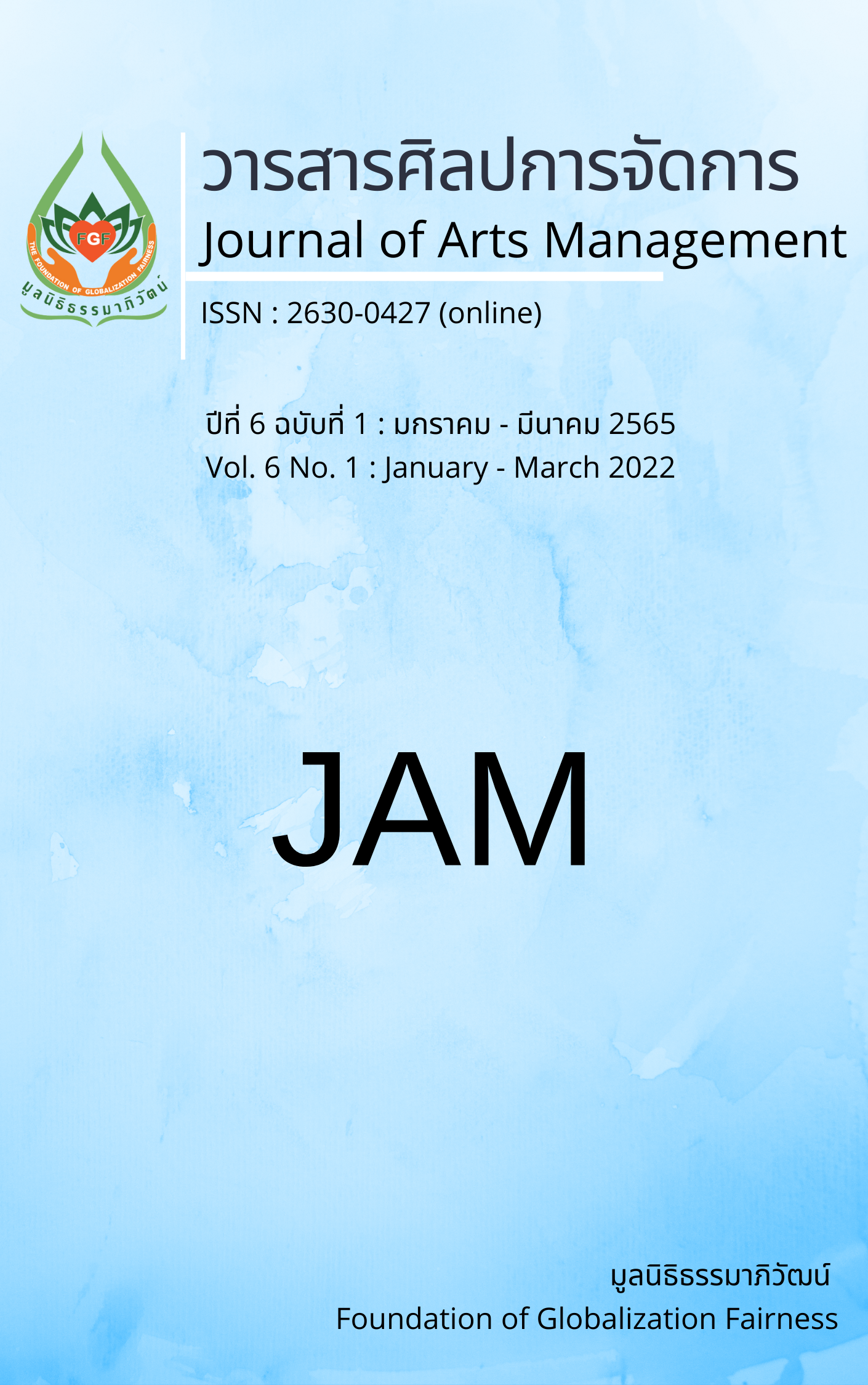The Development of Potential in Educational Economics of Rajamangala University of Technology Thanyaburi
Main Article Content
Abstract
The distribution of educational opportunities at the higher education level in Thailand is still required for the county’s development. This research aimed to study the development of potential in educational economics of Rajamangala University of Technology Thanyaburi and to propose the establishment project of Rajamangala University of Technology Thanyaburi Prachinburi Campus. This study used qualitative research methods and collected primary data from the group interviewed of the interested parties at the provincial level. Then, collecting the secondary data from the research information and the reports from each unit, they found that the existing potential of Rajamangala University of Technology Thanyaburi will be able to support and encourage including the development according to the requirements of each sections that the interested parties from both the government sector and the private sector required. Which may operate in the form of a Center of Excellence (CEO) establishment or Education Center or a Specialization Development Center by using the abilities and skills of each faculty. However, the establishment of Prachinburi Campus will provide a comprehensive response of local which Prachinburi Campus will also be one of the mechanisms in the development of potential manpower, encourage revenue increase, and at the same time, be in line with the strategic development at the provincial level, regional level, and national level very well.
Article Details

This work is licensed under a Creative Commons Attribution-NonCommercial-NoDerivatives 4.0 International License.
Views and opinions appearing in articles in the Journal of Arts of Management It is the responsibility of the author of the article. and does not constitute the view and responsibility of the editorial team I agree that the article is copyright of the Arts and Management Journal.
References
Benneworth, P., & Fitjar, R. D. (2019). Contextualizing the role of universities to regional development: introduction to the special issue. Regional Studies, Regional Science, 6(1), 331-338. DOI: 10.1080/21681376.2019.1601593
Chantawong, C., Saengsook, N., Amornrattanasak, S., & Cruthaka, C. (2019). The capability development model for lecturers promoting to executive position in Rajamangala University of Technology in the central region. Journal of Suvarnabhumi Institute of Technology, 5(2), 14-29.
Chienwattanasook, K., Jermsittiparsert, K., & Jarinto, K. (2019). the influence of entrepreneurial orientation, entrepreneurial education and university support on the entrepreneurial intentions of Thai graduates, with the moderating role of culture. International Journal of Innovation, Creativity and Change, 10(1), 198-220.
Chularut, P. (2018). Learning management for students in the Thailand 4.0 era. Veridian E-Journal, Silpakorn University Humanities (Social Sciences, and Arts), 11(2), 2363-2380.
Department of Industrial Works. (2018). Statistics on the number of industrial factories by province 2018. http://reg3.diw.go.th/webdiw/static-fac/
Holden, J., & Aslam, M. (2014). Education economics a guide through the subject. http://www.heart-resources.org/wp-content/uploads/2014/07/Education-Economics-a-guide-through-the-subject.pdf
Jarinto, K., Jermsittiparsert, K., & Chienwattanasook, K. (2019). The Influence of Innovation and self-employment on entrepreneurial inclination: The moderating effect of the role of universities in Thailand. International Journal of Innovation, Creativity and Change, 10(1), 174-197.
Maesincee, S. (2016). Thailand 4.0. http://planning2.mju.ac.th/government/20111119104835_planning/Doc_25590823143652_358135.pdf
Office of National Economic and Social Development. (2017). National economic and social development plan vol. 12 (2017-2021). https://www.nesdc.go.th/main.php?filename= develop_issue
Provincial Labour Office Prachinburi. (2017). Report of the events and labor index of Prachinburi 2017. Provincial Labour Office Prachinburi. http://prachinburi3.mol.go.th/sites/prachinburi.mol.go.th/files/bthwiekhraaahkaarraayngaansthaankaarnaerngngaanaitrmaas1pii2560.pdf
Pholpirul, P. (2015). Economic teacher. National Institution of Development Administration.
Psacharopoulos, G., & Patrinos, H. A. (2004). Human capital and rates of return. In G. Johnes & J. Johnes (Eds.), International handbook on the economics of education (pp. 1-33). Edward Elgar Publishing Limited.
Rajamangala University of Technology Thanyaburi. (2020). Policies and Strategic Plans 2020 – 2037. http://www.agr.rmutt.ac.th›action-plan-agr-rmutt
Refrigeri, L., & Alendri, G. (2014). The economics of education as educational science. Procedia – Social and Behavioral Sciences, 116, 2059-2063.
Romero, I., & Petrescu, R. M. (2011). Universities as suppliers of entrepreneurship education services. The cases of the University of Seville and the academy of economic studies in Bucharest. The Amfiteatru Economic Journal, 13(30), 347-361.
Tessema, G. D. (2012). Impact of entrepreneurship education on entrepreneurial intentions of business and engineering students in Ethiopia. African Journal of Economic and Management Studies, 3(2), 258-277.


